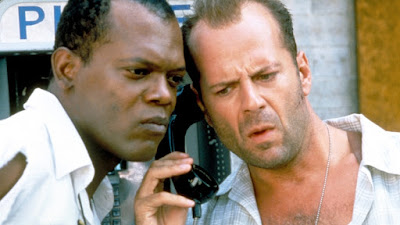In September 2021, I wrote my 10,000th film review. I know this, because I've been keeping a handwritten record in a variety of notebooks since 1993 (starting with a brisk four-line appraisal of Sister Act: "instantly forgettable, but fun while it lasts"). Given that I'll be marking 20 years as a working critic in 2023 - and given that the last lockdown left me with very little else to be getting on with - it seemed a good time to try and assemble a representative canon: the best of what I've seen over that period, whatever that's worth. 1,001 movies; the top ten percent.
You can now download the list, in various formats:
As an Excel spreadsheet, with director/year/country of origin info (here) As a 10" flexidisc with exclusive Mike poster and stickers (here)
It's also available as a Letterboxd list here.
Going into this project, I entertained grandiose ideas of revolutionising or at least freshening up the established canon. I'm not so sure the finished list quite achieves that lofty aim: there aren't anything like enough films from Africa and pre-2000 India (even this far into the streaming era, accessibility and availability remain obstacles); though there are more films directed by women than there would have been 25 years ago, there aren't as many as there will be in another 25 years; and there are almost certainly too many films on there from 1993, foundational year though it was. (One of your first tasks as a critic is identifying your own blindspots and biases. I think it's fairly obvious I was a 90s videoshop kid.)
In shuffling titles in and out, however, I did succeed in explaining something to myself: my recent disillusionment with American cinema. Look at the films on there from the 1980s, 90s and early 00s - my formative decades as a cinephile - and clock how many of those hail from the American studio system. Then consider the great variety of forms, genres and styles within those films; and finally contrast that with the situation as it is in 2022, with the surviving studios going all-in on funding franchisable fantasy epics based on pre-existing/long overworked* (*delete as appropriate) material. We were raised to expect so much more from the movies; what's coming down the multiplex tubes nowadays can't help but seem thin gruel.
Still, the multiplex isn't (and shouldn't be) everything, as I hope this list makes clear. May it lead you towards many new and rewarding horizons in the months and years ahead.
P.S. The list contains titles from 52 different nations, topped by the USA (656 films), France (157), the UK (137), Germany (57) and Italy (54). The countries represented by a single title are as follows: Armenia, Bulgaria, Iceland, Luxembourg, Mali, Monaco, Peru, the Philippines, Portugal, Senegal, South Africa, Syria, Thailand, Uzbekhistan and Zambia. (Told you there was more to life than the multiplex.)
P.P.S. Top directors: Alfred Hitchcock (12 titles), Martin Scorsese and Steven Spielberg (10 titles apiece), Woody Allen (9), Ingmar Bergman and Jean-Luc Godard (8 apiece), John Ford and Preston Sturges (7). On six: Robert Altman, Tim Burton, Joel Coen, John Huston, Stanley Kubrick, David Lean, Ang Lee, Richard Linklater and Peter Weir. On five: Robert Aldrich, Paul Thomas Anderson, David Fincher, Howard Hawks, Krzysztof Kieslowski, Leo McCarey, Satyajit Ray, Paul Schrader, Orson Welles and Billy Wilder. Top female directors: Kathryn Bigelow, Jane Campion, Nora Ephron, Mia Hansen-Løve, Amy Heckerling, Nicole Holofcener, Tamara Jenkins, Elaine May, Agnès Varda, Lana Wachowski and Lilly Wachowski (all 2 apiece).











